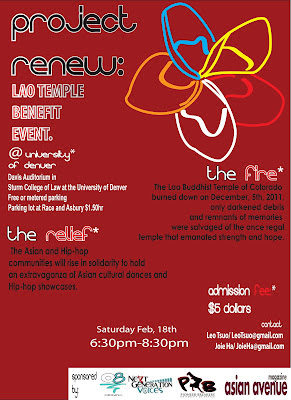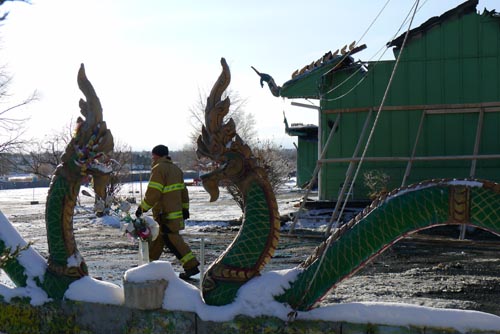Today marks the Tibetan New Year, Losar. In line with my most recent holiday post, I planned to invite a local Tibetan American to write some personal thoughts on celebrating Losar. You will probably see a number of blogs today post about Losar, but for the most part, you’ll be reading about white Buddhists describing a Tibetan holiday.
For the record, there’s absolutely nothing wrong with white folk celebrating Tibetan culture. In fact, I feel it’s absolutely important that we hear the voices of white Buddhists who practice Tibetan Buddhism, and who feel an abiding bond with Tibetan culture, including Losar. But what you’ll be missing out on is what they can’t tell you. For example, they can’t tell you what Losar means to them from growing up in a Tibetan family.
Amid all my criticism of white Buddhist publishers, writers and bloggers for their rampant neglect of Asian America, I operated under a silly assumption that these same individuals would realize that they were effectively excluding Asian American Buddhists from the conversation of Buddhism in the West—and then do something to change things. It’s become increasingly evident that the closest thing to inclusion we can expect from these writers is the appropriation of Asian American narratives and relating them through their own white-privileged perspectives. We hear white Buddhists speaking out about Wat Lao Buddhasampham—but where are the voices of the Lao Buddhists?
It’s not necessary to have an ethnic Tibetan talk about Losar to understand what Losar means—nor is it necessary to hear from a Lao Buddhist in Kansas to understand the injustice currently facing Wat Lao Buddhasampham. But the continued displacement of Asian American voices from the discussion of Buddhist America sends the implicit message that these voices are not worth including. By simply not changing the way we go about our research, interviews and writing, we accept the inequity of the status quo and thus support the continued subjugation of our diversity under the weight of the white privilege so tightly woven into Western Buddhism.
Then again, whose words are you reading here today, other than my own? I have no interview with other Asian Americans to present today for Losar. A death in the family pulled me away from my preparations, but that’s really no good excuse. If I’m going to castigate Buddhist publishers and bloggers for keeping Asian American Buddhists out of the spotlight, then I’d like should show them exactly who they’re missing. If you know of people you think should be interviewed on Angry Asian Buddhist, please don’t hesitate to drop me a comment below, and I’ll be more than happy to look into setting up guest posts and interviews.
Until then, tashi delek!

